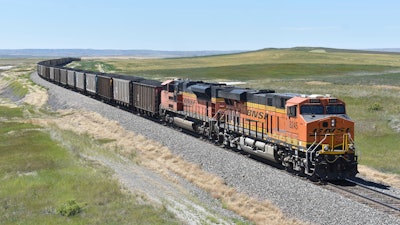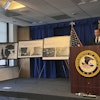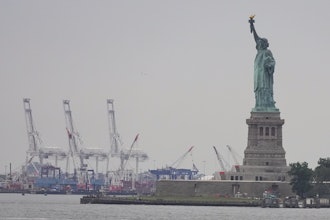
OMAHA, Neb. (AP) — BNSF railroad wants a federal judge to prevent two of its unions from going on strike next month over a new attendance policy that would penalize employees for missing work.
The Fort Worth, Texas-based railroad went to court after the Brotherhood of Locomotive Engineers and Trainmen and the Transportation Division of the International Association of Sheet Metal, Air, Rail, and Transportation union both threatened to strike over the new policy that is set to go into effect on Feb. 1. The unions said they are surveying their 17,000 members who work for BNSF to see if workers will support a strike.
The heads of the two unions, BLET National President Dennis Pierce and SMART-TD President Jeremy Ferguson, said in a joint statement that the new policy would violate their contracts with BNSF and could provide an incentive for workers to show up when they are sick in the middle of the coronavirus pandemic.
“This unprecedented BNSF policy repudiates direct and clear contract language, and in application, will attempt to force our members to report for duty without regard for their medical condition as we struggle to come out of a pandemic,” Pierce and Ferguson said.
The railroad maintains that this issue is a minor dispute that the unions wouldn't be allowed to strike over under federal law, and a strike shouldn't be allowed because it would hurt the economy too much.
“Rail strikes—even if brief or localized—can cause devastating and irreparable harm to carriers, their customers, other railroads, and the general public. The threatened strike in this case would strain an already overburdened supply chain, potentially causing wide-ranging harm to the national economy,” BNSF said in its lawsuit.
BNSF said it hasn't updated its attendance policy in 20 years, so it came up with the new system to give its employees an easier way to see where they stand under the rules.
A hearing will be held Monday to determine whether the judge will block the threatened strike.
BNSF, one of the nation's largest railroads, operates 32,500 miles of track in 28 western states.






















